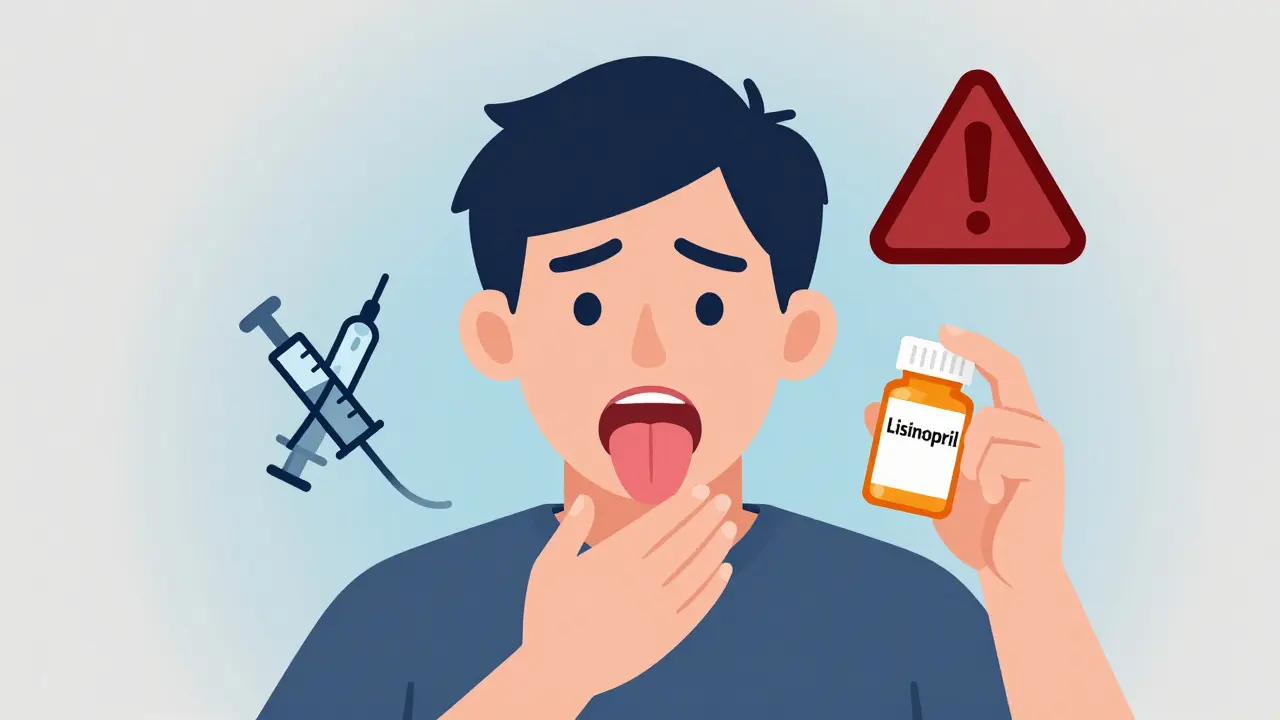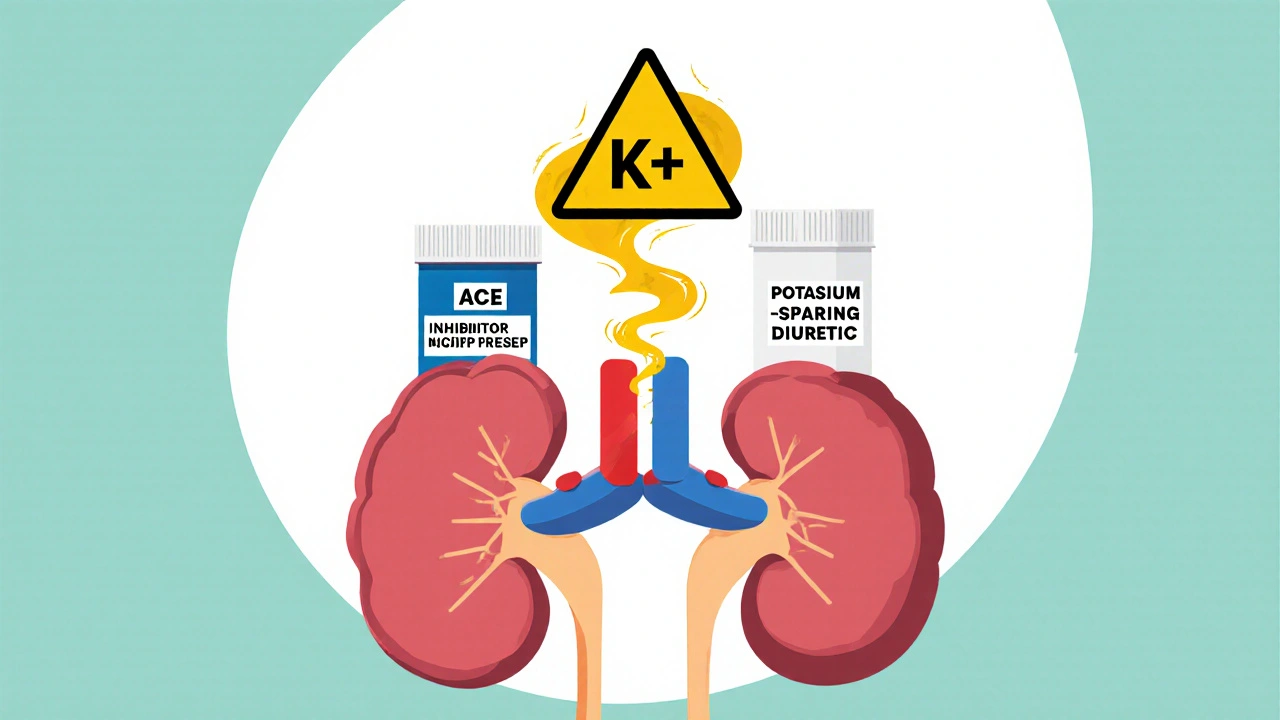
Medication-induced angioedema can cause life-threatening swelling in the throat and tongue. ACE inhibitors are the most common trigger, and standard allergy treatments often don't work. Know the signs, act fast, and avoid re-exposure.
ACE inhibitors are a group of medicines that lower blood pressure by relaxing blood vessels. They work by blocking an enzyme called angiotensin‑converting enzyme, which normally tightens vessels and raises pressure. When that enzyme is blocked, your heart doesn’t have to pump as hard, and blood flows more easily.
Doctors usually start an ACE inhibitor if you have high blood pressure, heart failure, or recent heart attack. They’re also common for people with kidney disease caused by diabetes because they protect the kidneys. Some well‑known brand names you might have heard are lisinopril, enalapril, and ramipril.
Typically, the doctor begins with a low dose and checks your blood pressure after a week or two. If it’s still high, they’ll increase the dose gradually. This step‑by‑step approach helps avoid sudden drops in pressure that can make you feel dizzy.
Most people tolerate ACE inhibitors well, but a few side effects are worth knowing. The most common is a dry cough that can linger for weeks. If the cough bothers you, let your doctor know – they might switch you to a similar drug called an ARB.
Another important warning is a rise in potassium levels, especially if you’re already taking supplements or a potassium‑rich diet. High potassium can cause muscle weakness or heart rhythm problems, so regular blood tests are a good idea.
If you ever feel swelling in your face, lips, or tongue, that could be an allergy called angio‑edema. It’s rare but serious, and you should seek medical help right away.
Pregnant women should avoid ACE inhibitors because they can harm the baby’s kidneys and skull. If you become pregnant while on one of these medicines, talk to your healthcare provider immediately for a safe alternative.
To get the best results, take your ACE inhibitor at the same time each day, with or without food. Missing doses can cause a bounce‑back in blood pressure, which defeats the purpose of the medication.
Finally, combine the pill with lifestyle changes: cut back on salty foods, stay active, and keep a healthy weight. The medicine does most of the work, but a heart‑healthy lifestyle keeps the pressure down for good.
In short, ACE inhibitors are powerful tools for controlling blood pressure and protecting the heart. Knowing what to expect, watching for side effects, and keeping up with check‑ups will help you use them safely and feel better every day.

Medication-induced angioedema can cause life-threatening swelling in the throat and tongue. ACE inhibitors are the most common trigger, and standard allergy treatments often don't work. Know the signs, act fast, and avoid re-exposure.

Combining ACE inhibitors and potassium-sparing diuretics can raise potassium to dangerous levels, increasing the risk of heart rhythm problems. Learn who’s at risk, how to monitor it, and what to do if your levels climb too high.

Explore practical ways to control edema in heart failure without Lasix. This guide shows how ACE inhibitors, diet, and compression therapy play key roles.